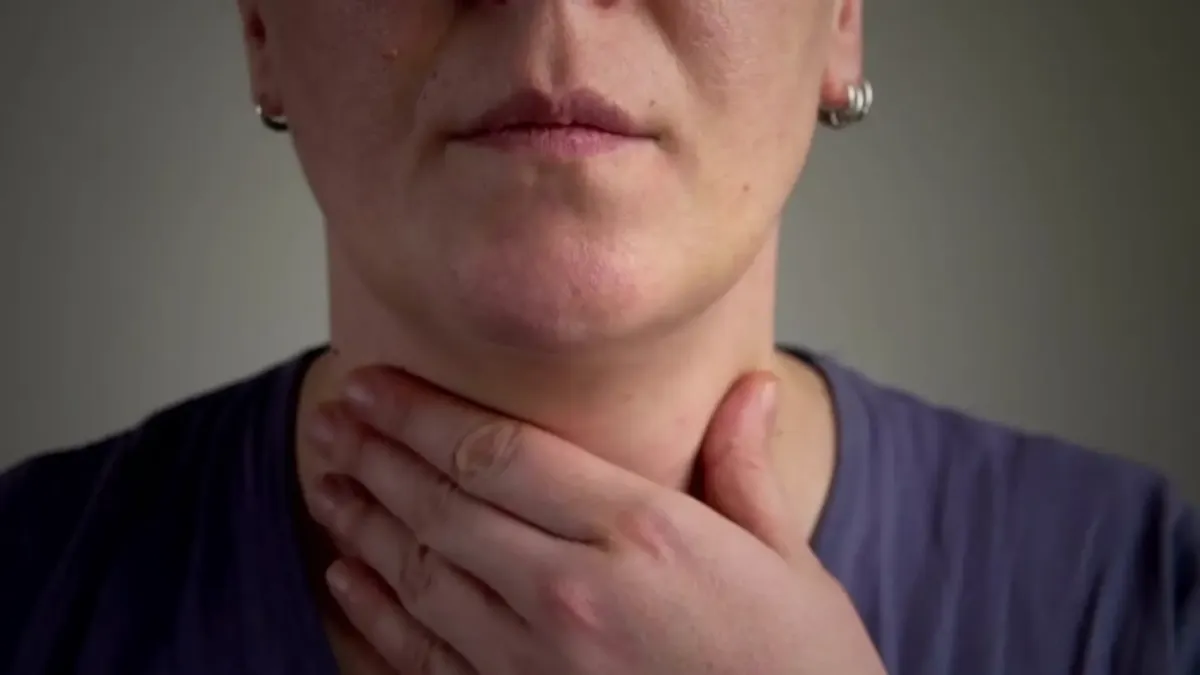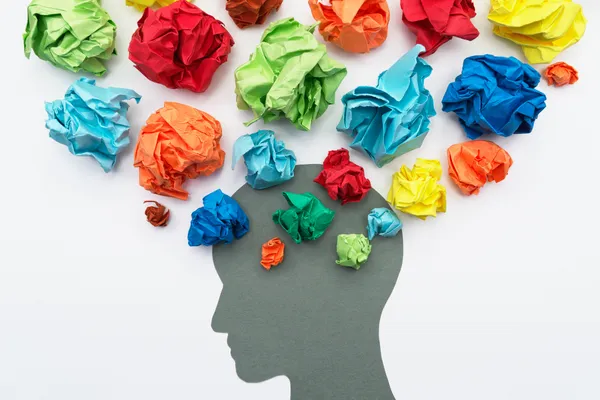MENU
BLOG

Treating Sex Hormone Imbalances
Sex hormones are that are involved in the regulation of sexual development and reproduction. The primary sex hormones are estrogen, progesterone, and testosterone. Men and women have all of these, just in different amounts and ratios...
When men and women have low energy caused by an imbalance in their sex hormones, it is usually from different hormones. For men, it is usually due to a testosterone deficiency. For women, it is usually due to estrogen and/or progesterone imbalances.

Sex Hormones & Low Energy
The symptoms of menopause are no joke. They are incredibly uncomfortable and can change the quality of your life significantly. When a woman comes to me with menopausal symptoms, she is usually pretty desperate for relief. I use both natural and pharmaceutical therapies to get her that relief.

Treating Thyroid Disease
I am a big believer in natural medicine. It can be very powerful and work very well. I prefer to use it as long as the natural treatment is safe and strong. Unfortunately, when treating low thyroid, we usually need both the natural and the prescription treatments. In college, I learned from playing the card game euchre not to “send a boy to do a man’s job.” In medicine, this means using the treatment that you know will work. If I think a natural treatment will work, but I know that a medication will work, I should use the medication as long as there are no significant side effects. This is because I want to make sure you get results right away so that you can get your life back

Treating Thyroid Disease
Thyroid disease is one of the most common health problems we face today. The majority of people with thyroid dysfunction have hypothyroidism. Hypothyroidism (“hypo” means low) is a condition where the amount of thyroid hormone in your body is less than what is needed for optimal function. According to the American Thyroid Association, more than 12 percent of the US population will develop a thyroid condition during their lifetimes, and more than half will be unaware that they have a problem. Women are five to eight times as likely as men to develop thyroid problems.

Advanced Adrenal Recommendations
Last week, I went over the recommended supplements to treat Adrenal Fatigue. This week I’ll go over adrenal recommendations as well as a plan to reduce stressors.
Treating the physical symptoms is only the first step. Once you start to feel better, it’s important to begin addressing the causes of the problem: the sources of stress that compromised your adrenals in the first place.

Testing & Supplement Options for Adrenal Fatigue
Last week we discussed the main symptoms as well as the causes of adrenal fatigue. This week, I will focus on testing and supplement options for treatment.
If you have most of the symptoms listed last week, you probably have adrenal fatigue. However, how do we test for adrenal dysfunction?

How Adrenal Fatigue Causes Chronic Fatigue
This week I will discuss how adrenal fatigue is a primary cause of chronic fatigue.
It's estimated that up to 80% of adults experience adrenal fatigue during their lifetimes, yet it remains one of the most under-diagnosed illnesses in the United States. Conventional medicine does not yet recognize adrenal fatigue as a distinct syndrome

Food Allergies & Low Energy
Food allergies can cause almost any symptom the body can manifest, including low energy. The gastrointestinal tract maintains a delicate balance of good bacteria, specialized immune cells, and various neurological and hormonal activities. In fact, 80% of your immune system resides in your gut, so anything you put in your mouth can trigger a reaction. Once your digestive system detects what it considers a “foreign particle,” your immune system reacts, and the inflammation that follows creates pain and dysfunction.

Food and Your Energy
Food is a touchy subject, especially if you’re not feeling well. We have a lot of emotional attachments to it, and it can give us joy at times when nothing else can. However, food allergies play a significant role as a cause and contributor to fatigue and, as a doctor, I have seen amazing improvements in the health of my patients when they change their food choices.

Fix Your Emotional Health - Part 2
I asked my wife, Stacy, to write a series of posts on how to fix your emotional health – this is part 2 of the series by Stacy Hirsch, MES, ACC, CDWF
In part 1 of this series, I shared my own personal journey and we discussed the emotional experience. In this post we will discuss the 3 components of that experience in greater depth and also learn how stress makes you sick.
Physiologic Response
The sympathetic nervous system, which manages the body’s fight-or-flight reactions, controls the body’s subjective experience of emotion. The amygdala, part of the limbic system in the brain, is made up of two tiny almond-shaped structures that are sensitive to fear and threatening situations. It reacts to your emotions and patterns in your physical environment faster than your conscious awareness can detect.
Behavior Response
This is the component of emotion most people are familiar with because it is often easy to see. You raise your voice, wave your hands, you begin to sweat, or your face turns red. Why do some people blush with embarrassment while others don’t? It is the subjective experience of the emotion that determines the expressive response.
Emotional Regulation
From an evolutionary perspective, and first written about by Charles Darwin, emotions keep us alive. Fear guides us away from danger, while love and desire ensure we procreate.
When you can no longer respond effectively to the ongoing demands of your environment, you become less organized in your thoughts, actions, and interactions. You enter a state of emotional dysregulation. Your responses become exaggerated, you overreact, you take on unappealing behaviors, and you are more likely to create chaos, drama, or conflicts. Emotional dysregulation is often relational and triggered by those closest to you or by those in positions of power.
How Stress Makes You Sick
Challenges with your ability to regulate your emotions can manifest in a wide array of symptoms. For me, it began with how I related to common, everyday life stressors. I might raise my voice or sink into despair. It was painful, but it seemed mostly normal. As more dysregulation surfaced, it resulted in difficulty sleeping, depression, night terrors, fatigue, anxiety, and panic attacks.
Symptoms of emotional dysregulation may include:
1. Difficulty sleeping, insomnia
2. Chronic fatigue, low energy, apathy
3. Physical symptoms with no apparent cause
4. Anger that is difficult to control
5. Difficulty quieting the mind
6. Obsessive-compulsive behaviors
7. Loss of sexual desire
8. Difficulty making decisions
9. Brain fog or memory issues
10. Difficulty tolerating social activity, the need to avoid others
11. Erratic behaviors, easily agitated, mood swings
12. Feeling overwhelmed, on the edge, or hopeless
13. Racing thoughts
14. Engaging in risky behaviors to relieve stress or numb
15. Withdrawal or isolation from other people
16. Increase in negative or difficult emotions
According to the popular website Mercola.com: “the American Medical Association (AMA) states 80 percent of all health problems are stress related, and even the conservative Centers for Disease Control and Prevention (CDC) has stated that 85 percent of all diseases appear to have an emotional element.”
What you feel and how you feel matters.
Find Your Emotional Comfort Zone
“The truth is that there is no actual stress or anxiety in the world; it's your thoughts that create these false beliefs. You can't package stress, touch it, or see it. There are only people engaged in stressful thinking.” ~ Wayne Dyer
Stress, like emotion, is highly individualized. Your nervous system begins to form while you are still in your mother’s womb and continues to wire during the early years of your life. This wiring happens differently for each person, depending on the support available in the environment. Without the proper support, an individual can experience difficulties in self-regulation throughout their lives, leaving them more vulnerable to stressors in their environment. The good news is that you can re-wire.
Most of us are familiar with the concept of stress, but few of us take the time to assess the various stressors in our lives or attempt to understand the underlying emotional triggers and internal conflicts that impact our well-being. Your thoughts, feelings, and experiences form your beliefs. It is these beliefs that are often at the root of stressful moments. How can you become more mindful of this process? How do you shift your subjective experience and create healthier physiologic responses?
What we also know is that moderate amounts of stress and tension can be motivating and provide opportunities for your brain to grow and learn. With enough higher functioning available during a stressful episode, you can examine the thoughts, emotions, and beliefs that are leading to the tension.
The tricky part is knowing when you cross a threshold, where moderate stress starts to become overwhelming and chronic, and where you can no longer regulate your emotional response.
The graphic below depicts a continuum between healthy stress and distress:

1. A low amount of activity combined with too little stress or tension results in boredom.
2. When activity increases and one becomes more engaged with life, there is the potential for healthy or creative tension moving a person into a comfort zone. Inside this zone, a person functions well with the proper amount of motivation to feel productive and without the overwhelm that often accompanies greater activity. People often refer to this as a flow state. Your emotional state is easily regulated, and you feel resilient.
3. If activity and tension continue to increase, a person may move into a space between comfort and the first signs of fatigue. The early signs of distress may appear as this is where old fragmentation may surface in response to increased tension.
4. If you are experienced in the realm of self-care, you may recognize the early signs of distress and take action to avoid more tension, while creating opportunities to reconnect with your comfort zone. This is the space where resilient people engage their support system and avoid crossing the threshold. They read the signs and determine what needs to be addressed.
5. When you do not know what to look for, or you don’t recognize the early warning signs of distress, you may begin to feel tired with long bouts of fatigue. Exhaustion and other symptoms follow, and if you remain in a state of dysregulation, a breakdown is inevitable, resulting in a chronic state of fatigue and complete burnout.
How do you learn to stay in your comfort zone? Take care of what arises when it arises. Become equipped with the right information and attuned in a moment-to-moment awareness. It requires you to know yourself, your needs, and your healthy limits and then be equipped to respond accordingly.
This type of awareness is elusive for many people. We often aren’t encouraged to know ourselves or to ask for what we need. We get disconnected from our bodies and our emotional selves. We feel pressured by those in our lives and by our high expectations. We search for ways to stay in control, even if it means drifting toward greater distress.
This can also be challenging if you feel the stressors in your life are out of your control, for example, if you experience an infection in your body, long-term illness, a sick loved one, chronic poverty, neighborhood violence, politics, or world events. Understanding what to do doesn’t always mean you can make these stressors disappear. When you cannot remove the stressor, you need to look at how you can respond differently or find support to buffer the impact of the stressor. Stress that remains constant changes the brain and impacts the stress response system, creating more stress in the body and increasing the risk of developing chronic health conditions such as fatigue.
Take Action:
Now that you understand the power of emotions and the impact they can have on your fatigue, we will discuss how to identify specific causes impacting you and what to do about them in Part 3 of the series on How to Fix Your Emotional Health (available on Oct 31, 2022).
Join the conversation in the Facebook Group.
Share this article with your friends and loved ones on social media and help me achieve my mission of helping 1 million people increase their energy!

A safe space for all.
We're LGBTQ+ supportive
Copyright (c) EnergyMD







